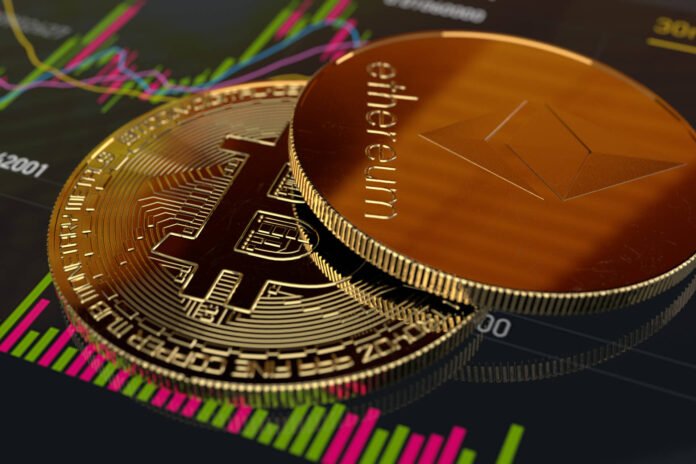Introduction of Solana and Polygon as innovative blockchain projects in India
Solana and Polygon are both blockchain projects that have been gaining attention in the Indian market.
High-performance blockchain platform Solana employs an original consensus technique called “Proof of Stake Time” to achieve fast transaction speeds and low fees. Solana’s technology can support thousands of transactions per second, making it one of the fastest blockchain platforms in the market. Solana has been actively working with India-based crypto startups and has signed a collaboration agreement with Chain Guardian, a leading Indian blockchain company, to explore new use cases for the Solana news in India.
Polygon is a blockchain infrastructure that aims to enable faster and cheaper transactions on the Ethereum network. It is a layer-two scaling solution that allows for off-chain transactions, reducing the load on the Ethereum blockchain and increasing transaction speeds. Polygon’s infrastructure is also designed to be highly modular and customizable, making it easy for developers to build decentralized applications (dApps) on top of it. In India, Polygon has been adopted by various projects, such as Aavegotchi, a blockchain-based gaming platform, and QuikNode, a leading Ethereum infrastructure provider.
As per Polygon crypto news, polygon is considered innovative blockchain projects in India. They provide high-performance solutions to scalability and high transaction fees, which are major pain points for many blockchain projects. Their adoption in India highlights the growing interest and potential of blockchain technology.
Solana and it’s potential in India
Solana’s technology is built on a proof-of-stake (PoS) mechanism, where token holders can stake their tokens to secure the network and validate transactions. Post adds a layer to this mechanism, where the time of the stake is also taken into account when determining the validation rights of a node. It allows for faster and more efficient validation of transactions.
Solana has several potential use cases in India, such as:
- Digital payments: Solana’s high-performance capabilities make it well-suited for digital payments and other financial services, where fast and secure transactions are a must.
- Supply chain management: Solana’s blockchain technology can track the movement of goods through the supply chain, providing transparency and reducing the risk of fraud.
- Gaming: Solana’s high-performance capabilities make it well-suited for gaming and other interactive applications that require fast and secure transactions.
- Decentralized finance (DeFi): Solana’s blockchain technology can be used to build decentralized financial applications, such as lending platforms and token exchanges.
- Identity verification: Solana’s blockchain technology can create secure and verifiable digital identities, which we can use to authenticate individuals and organizations.
These are just a few potential use cases of Solana in India. As the adoption of blockchain technology continues to grow in the country, new and innovative use cases for Solana will likely emerge.
Polygon and its potential impact on India’s blockchain and crypto landscape
Polygon has the potential to have a significant impact on India’s blockchain and crypto landscape.
One of the key benefits of Polygon is its ability to scale the Ethereum network, the most widely used blockchain platform for decentralized applications (dApps) and smart contracts. By providing a layer two scaling solution, Polygon allows for faster and cheaper transactions on the Ethereum network, which could attract more developers and users to the platform and accelerate the growth of the decentralized ecosystem in India.
Another potential impact of Polygon is that it could attract more institutional and retail investors to the Indian crypto market. Polygon’s high-performance and low-cost transactions could make it more attractive for institutional investors and traders looking for fast and efficient ways to execute trades and manage their assets.
Polygon’s strong focus on security and governance could also make it an attractive option for regulatory authorities and government organizations in India. The Indian government has been actively exploring blockchain technology in various areas, such as land registry, digital identity, and supply chain management. The robustness and scalability of Polygon’s technology could be well-suited for these types of applications.
In summary, Polygon has the potential to have a significant impact on India’s blockchain and crypto landscape by providing a high-performance and low-cost scaling solution for the Ethereum network, attracting more developers and users to the platform, encouraging innovation and experimentation with decentralized applications, and attracting more institutional and retail investors to the Indian crypto market.
Discussion of the potential for future adoption of Solana and Polygon in India
The potential for future adoption of Solana and Polygon in India is promising due to the benefits they provide in terms of high-performance, low-cost, and secure solutions.
The Indian government has been actively exploring blockchain technology in various areas, such as land registry, digital identity, and supply chain management. Solana and Polygon’s technology can provide robust and scalable solutions for these applications, which could help to facilitate the implementation of blockchain technology in government services and improve their efficiency.
In the private sector, various industries, such as finance, gaming, digital identity, supply chain management, and digital collectibles, are increasing interest in blockchain technology. Solana and Polygon can provide solutions that can improve the performance and scalability of these applications.
In the crypto market, Solana and Polygon can help attract more institutional and retail investors to the Indian crypto market by providing fast and efficient ways to execute trades and manage assets. Both projects have a strong focus on security and governance, which could make them more attractive options for regulatory authorities and government organizations in India.
Overall, the future adoption of Solana and Polygon in India looks promising, as they both provide high-performance, low-cost, and secure solutions that can improve the performance and scalability of various blockchain applications and attract more institutional and retail investors to the Indian crypto market.
